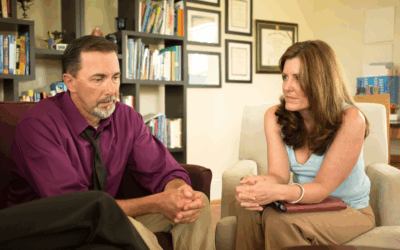Specialized Counseling for Couples, Families, and Individuals in NJ
Navigate Life’s Challenges with Compassionate, Expert Care
Compassionate therapy for high-conflict couples, blended families, LGBTQ+ & multicultural relationships, parenting, caregiving, and healing from loss.
Compassionate, Non-Judgmental Care for Life’s Challenges.
At Maplewood Counseling, we provide a safe, inclusive space where individuals, couples, and families can navigate even the most complex situations. From infidelity recovery to multicultural and LGBTQ+ issues, our expert therapists are here to guide you with care, understanding, and proven strategies.
Marriage, Couples & Premarital Therapy
Individuals, Families, Couples
Infidelity, Blended Families, Multicutural Couples
High Conflict Couples, Complex Relationships
Anxiety, Depression, Grief, Anger, Caregiver Stress
Parenting Help, Teen Therapy

Our Personalized and Specialized Services.
At Maplewood Counseling, we understand that relationships are at the heart of a fulfilling life. That’s why we’re here to support you at every stage of your relational journey.
- We start where relationships begin—helping individuals and couples navigate dating, premarital counseling, and the early challenges of building a strong foundation.
- As life evolves, we’re by your side—offering guidance through parenting, family dynamics, caregiving for aging loved ones, and navigating illness or loss.
- When relationships end or change, we help you heal—providing compassionate care for those recovering from divorce, family trauma, or toxic relationships.
Wherever you are in life, Maplewood Counseling is here to help you build, strengthen, and heal the relationships that matter most. We provide expert guided counseling in Essex County, NJ and Telehealth from any location in New Jersey.

Couples & Marriage Therapy

Individual Therapy

Family Therapy
Our Experienced Therapists here to Help You.
Exceptional care, when you need it most. With extended availability, senior-level therapists, and personalized support, we’re here for you—even on evenings and weekends.

Natcha Delva

Daphne Berkovits

Robert Jenkins

Ongeri Aminga

Sarah Newman

Debra Feinberg
Expert Support for Complex Relationship & Family Systems.

Navigating Modern Love and Family Dynamics
From multicultural and LGBTQ+ partnerships to blended families, we help you find clarity, connection, and a path forward.
Facing Complex Relationship Challenges?
Whether it’s high-conflict cycles, infidelity, co-parenting, or blended family dynamics, you’re not alone. At Maplewood Counseling, we specialize in the unique realities of modern relationships, offering expert care tailored to your needs.
Specialized Support for Your Journey
- Infidelity Recovery: Rebuilding trust and intimacy.
- Blended Families: Navigating roles and boundaries.
- High-Conflict Cycles: Breaking destructive patterns.
- Multicultural & LGBTQ+ Couples: Inclusive, affirming care.
Ready to Transform Your Relationship?
Let us help you turn challenges into opportunities for growth and connection.
Inclusive & Culturally Responsive Care
A Safe Space for Every Relationship to Thrive
At Maplewood Counseling, we are deeply committed to providing truly inclusive and culturally responsive care. We understand that your identity and background shape your experiences, and we honor that in every session.
We specialize in:
- LGBTQ+ affirming therapy
- Multicultural, interracial, and interfaith relationships
- Neurodiverse partnerships and families
- Blended family dynamics
- Support for high-conflict couples
- Infidelity recovery and rebuilding trust
- Guidance through major life transitions
Here, your identity, culture, and unique experiences are not only respected—they are celebrated.
Why Choose Maplewood Counseling?
Expert Care, Tailored to You
We don’t believe in one-size-fits-all solutions. Your story is unique, and your care should be too. When you choose us, you are choosing a partner dedicated to your well-being.
- Experienced Therapists: Our team of senior-level therapists brings years of specialized expertise to every session.
- Inclusive & Affirming: We celebrate diversity and provide a welcoming space for all individuals, couples, and families.
- Flexible Scheduling: With evening and weekend availability, we make therapy fit into your busy life.
- Compassionate Approach: We meet you where you are, offering empathetic support to help you grow and heal.
Testimonials
Real Stories of Growth and Connection
“Our marriage therapist at Maplewood Counseling helped my spouse and I finally resolve issues we couldn’t handle on our own. It made a huge difference in our connection.”
— J.T. & C.T. ★★★★★
“I highly recommend Maplewood Counseling. Debra is compassionate, insightful, and truly gifted at helping couples and individuals navigate challenges.”
— L.L.S. ★★★★★
“We went to couples therapy and had a very good experience. Things are so much better now. I highly recommend!”
— S.D. ★★★★★

Quality and Inclusive Counseling in NJ
At Maplewood Counseling, we are committed to creating an inclusive, welcoming, and supportive environment for individuals from all cultures, backgrounds, beliefs, and lifestyles. Our compassionate and skilled therapists provide a safe, judgment-free space where you can find the help you need to navigate life’s challenges.
Our therapists are here to meet you where you are—supporting you with understanding and respect, no matter what challenges you face. For those seeking deeper work, we also provide longer, intensive sessions for couples, individuals, and families.
Finding time for therapy shouldn’t be another source of stress. We understand that your life is busy, which is why Maplewood Counseling offers flexible appointment options to fit your schedule, with sessions available 7 days a week.
Your path to healing should be on your terms with flexible counseling and intensive session options. Let us support you.

See Our Resources
5 Essential Tips for Co-Parenting After a Divorce
5 Tips for Co-Parenting After Divorce for a Healthy Family Dynamic Reviewed by Debra...
Inclusive Postpartum Relationship Support in New Jersey
Postpartum Relationship Support at Maplewood Counseling Reviewed by Debra Feinberg LCSW...
Healing After an Affair with Children: A Co-Parenting Guide
Healing After an Affair: A Guide to Co-Parenting and Family Recovery Discovering infidelity...
Helpful Resources
- Couples Therapy: Strengthen your relationship with expert guidance.
- Individual Therapy: Personalized support for managing life’s challenges.
- Family Therapy: Build stronger family connections with professional support.
- Grief Counseling: Support for processing loss and navigating grief.
- New Client Hub: See our new client hub to set up your first session.



